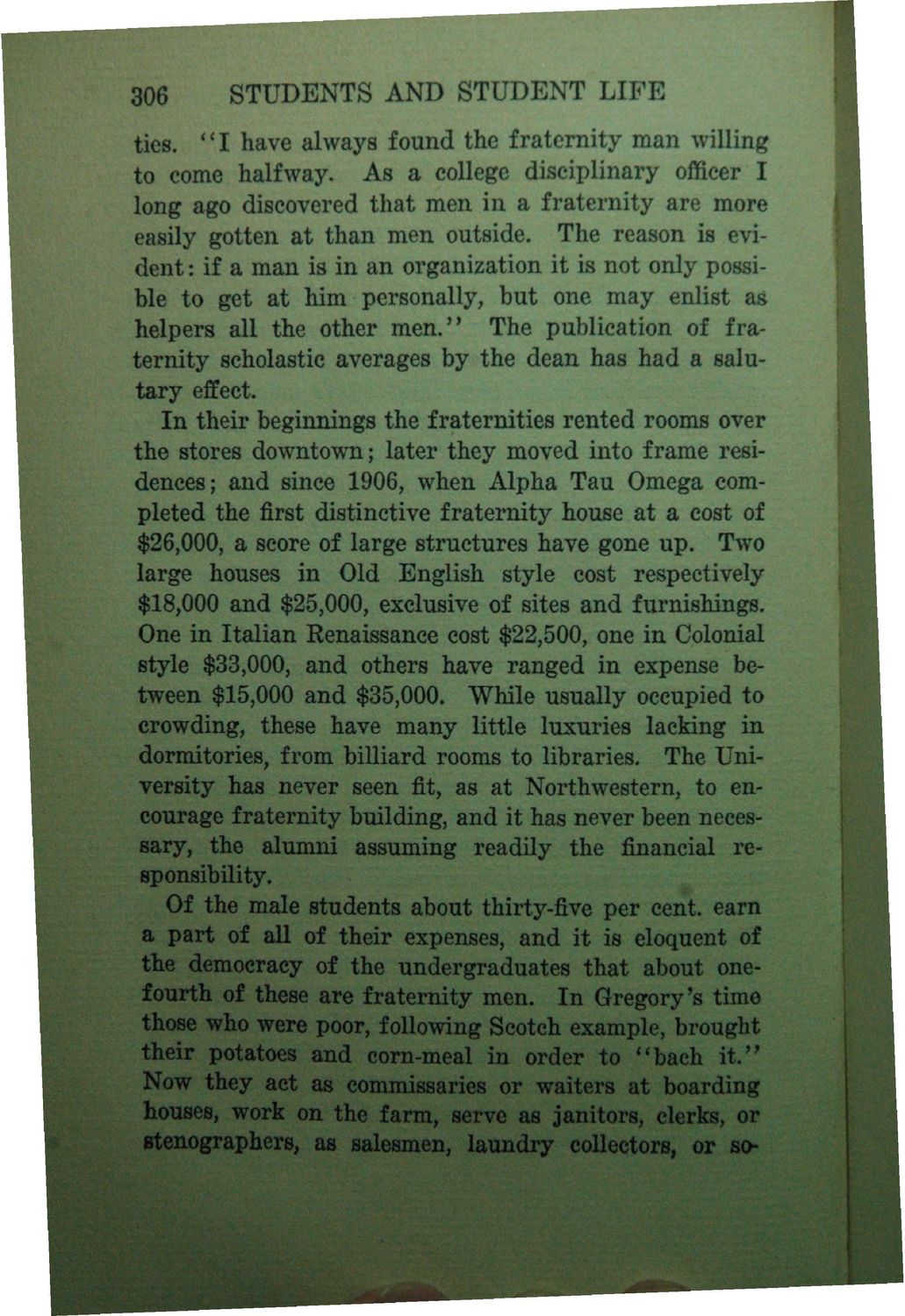| |
| |
Caption: Book - History of the University (Nevins)
This is a reduced-resolution page image for fast online browsing.

EXTRACTED TEXT FROM PAGE:
306 STUDENTS AND STUDENT LIFE ties. " I have always found the fraternity man willing to come halfway. As a college disciplinary officer I long ago discovered that men in a fraternity are more easily gotten at than men outside. The reason is evident : if a man is in an organization it is not only possible to get at him personally, but one may enlist as helpers all the other men." The publication of fraternity scholastic averages by the dean has had a salutary effect. In their beginnings the fraternities rented rooms over the stores downtown; later they moved into frame residences; and since 1906, when Alpha Tau Omega completed the first distinctive fraternity house at a cost of $26,000, a score of large structures have gone up. Two large houses in Old English style cost respectively $18,000 and $25,000, exclusive of sites and furnishings. One in Italian Kenaissance cost $22,500, one in Colonial style $33,000, and others have ranged in expense between $15,000 and $35,000. While usually occupied to crowding, these have many little luxuries lacking in dormitories, from billiard rooms to libraries^The University has never seen fit, as at Northwestern, to encourage fraternity building, and it has never been necessary, the alumni assuming readily the financial responsibility. Of the male students about thirty-five per cent, earn a part of all of their expenses, and it is eloquent of the democracy of the undergraduates that about onefourth of these are fraternity men. In Gregory's time those who were poor, following Scotch example, brought their potatoes and corn-meal in order to "bach it." Now they act as commissaries or waiters at boarding houses, work on the farm, serve as janitors, clerks, or stenographers, as salesmen, laundry collectors, or so-
| |